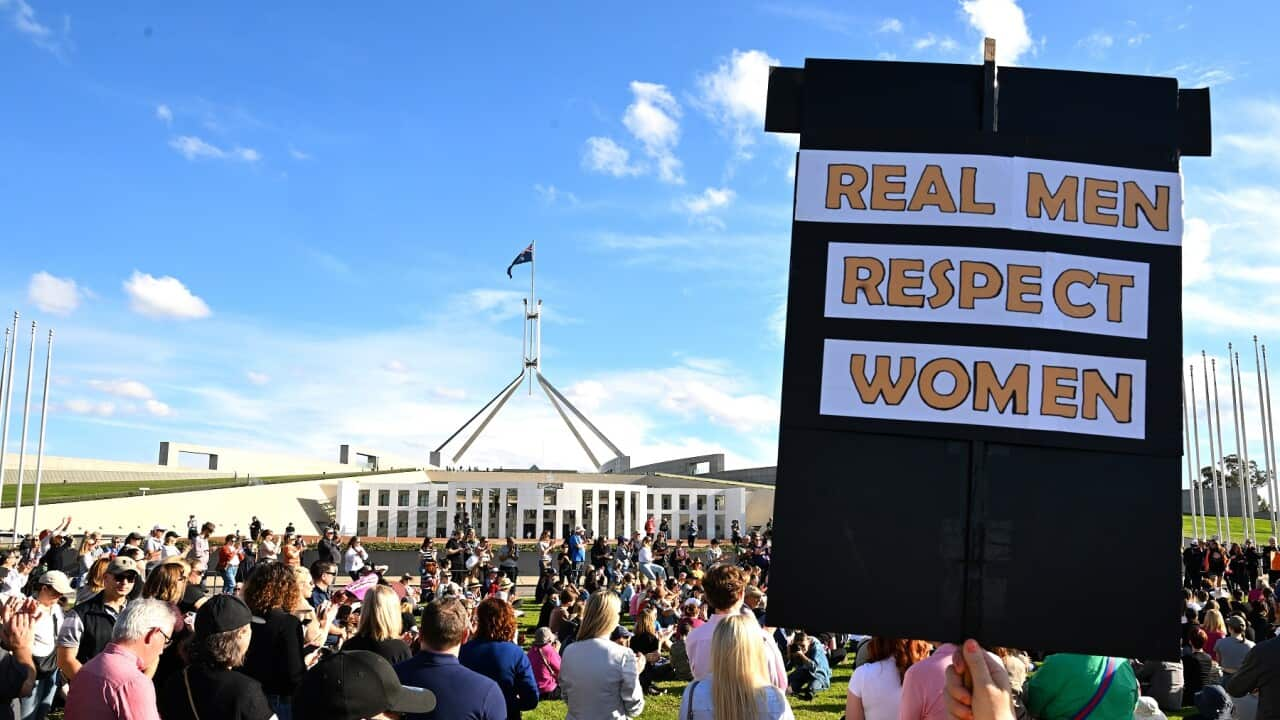TRANSCRIPT
Amid a widening national spotlight on violence and femicide, the Australian Institute of Criminology has reviewed all homicides in the year to June 2023.
Of the total 247 deaths, the report found 75 were women, and of those, 34 were killed by a current or former intimate partner.
While homicide rates have fallen overall since 1989 when this study began, the latest report shows a 28 per cent increase in intimate partner homicides involving a female victim from the previous year.
Deputy Director of the Australian Institute of Criminology Dr Rick Brown says these findings are troubling.
"The most disturbing statistic that we have from our national homicide monitoring program is that, over the course of the time we've been running the program since 1989 there have actually been 1667 women who have died at the hands of their partners, through intimate partner homicide."
The report classifies homicide into three different categories, depending on the perpetrator's relationship with their victim: domestic, acquaintance and stranger.
Findings showed stranger homicide is relatively rare for women, accounting for around 13 per cent of all female victims in the most recent period.
But Law Professor Heather Douglas, from the University of Melbourne, says there's still more that needs to be done.
"There are still too many women calling for police assistance, and not getting the assistance and support they need at the time that they need it. I think too often police officers are not updating their risk assessments. There's been a lot of good law reform in relation to this space but I still think we're behind in implementing that law reform."
Last year, the Institute identified three key paths that led to killings by male intimate partners.
'Deterioration or acute stressors' caused by life events accounted for around 11 per cent of homicides.
The 'fixated threat' pathway, which includes stalking or other obsessive behaviours, made up 30 per cent.
Dr Rick Brown talks about another major cause of female murders by their male partners.
"And thirdly one I think is particularly interesting is a group that we call persistent and disorderly, that make up about 40% of perpetrators in intimate partner homicide cases. And these are the cases where there's just the repeat domestic violence happening in households, where police are continually going to those houses to deal with those issues, and essentially we have a significant group of recidivist offenders there."
Minister for Youth and victim-survivor Anne Aly [[ah-lee]] has told the ABC each domestic violence death re-traumatises victims.
She says while there is a legal difference between terrorism and gendered violence but the experiences are often similar for victims.
"There are differences in organisation, mobilisation, the motivations and the causes, but I think it's important to recognise that for the women who are being terrorised, it is very much violence, terrorism, control."
Demand for suicide prevention hotline Lifeline reached an all-time high on Sunday as domestic violence rallies took place across the country.
The crisis support service received 4,351 calls and messages on the day, its busiest day on record and 20 per cent above the yearly average.
Amid growing calls to declare a national crisis, Prime Minister Anthony Albanese has called a national cabinet meeting to discuss the issue.
Mr Albanese says there must be a combination of long-term solutions and immediate actions to effectively address this matter.
"We need to acknowledge that this is an issue which is long-term, does require attitudinal change, requires a whole range of measures. But we also need practical immediate measures and responses as well. And I look forward to a constructive discussion."













